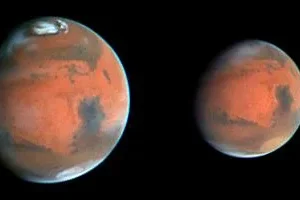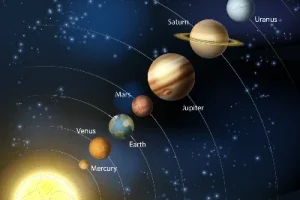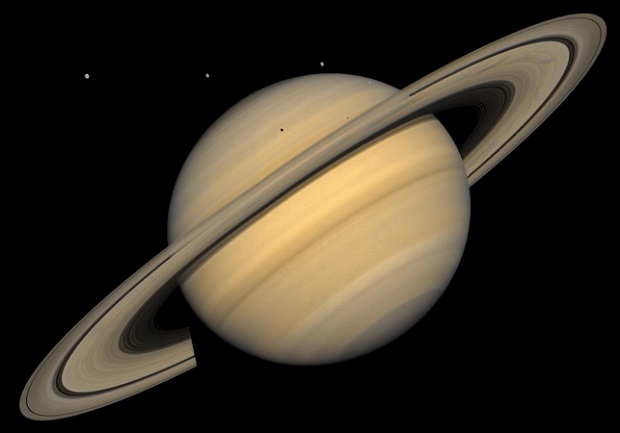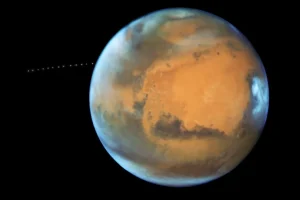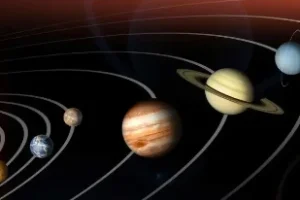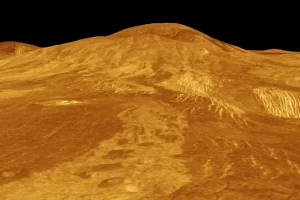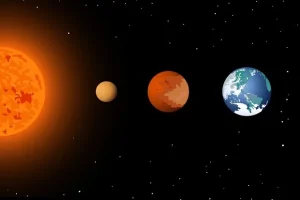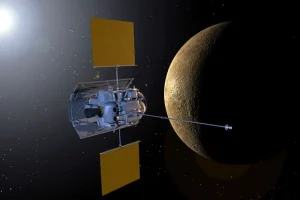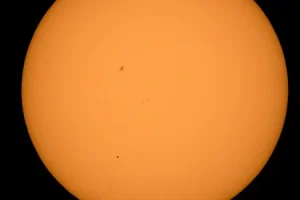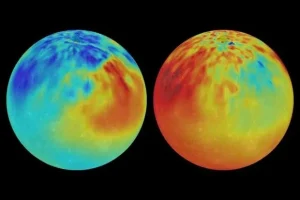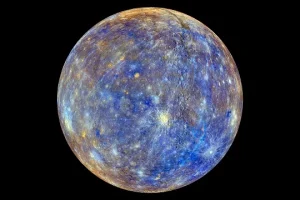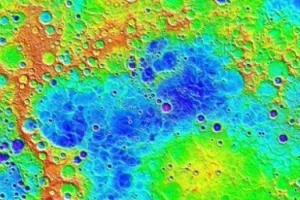Category: Astronomy
What’s the Largest Planet in the Solar System? Answer: The largest planet in our solar system is Jupiter. It’s a massive gas giant that’s more than 11 times wider …
Why Does Mars Look Red? Answer: Mars looks red because its surface is covered with iron-rich dust and rocks that have rusted over time. When iron reacts with oxygen, …
What’s the Smallest Planet in the Solar System? Answer at a Glance: The smallest planet in our solar system is Mercury. Even though it’s the closest planet to the …
What’s the Order of the Planets? Answer at a Glance: The planets are ordered by how close they are to the Sun. From closest to farthest, they are: Mercury, …
Which Planets Have Rings? Answer at a Glance: Four planets in our solar system have rings: Saturn, Jupiter, Uranus, and Neptune. While Saturn’s rings are the biggest and brightest, …
Which Planet Could Humans Live On? Answer at a Glance: Right now, Earth is the only planet where humans can survive naturally, but if we had to choose another …
Why Do the Planets All Orbit the Sun? Answer at a Glance: The planets orbit the Sun because of gravity—the powerful force that keeps them from flying off into …
Which Planet Has the Most Moons? Answer at a Glance: As of now, Saturn holds the record for the most moons in our solar system—with over 150 confirmed moons! …
Why Don’t Planets Collide? Answer at a Glance: Planets don’t collide because they’re locked in stable orbits around the Sun, thanks to a perfect balance between gravity and motion. …
Is Venus Bigger Than Earth? No, Venus is not bigger than Earth—but it’s very close! In fact, Venus is often called Earth’s twin because the two planets are almost …
Has Anyone Ever Landed on Venus? No person has ever landed on Venus—but several spacecraft have. These robotic missions were sent by the Soviet Union, starting in the 1960s. …
Does Venus Have Seasons? No, Venus does not have seasons like Earth does. While our planet goes through spring, summer, fall, and winter because it’s tilted on its axis, …
Could Anything Survive on Venus? The surface of Venus is way too hot and toxic for humans or animals to survive—but some scientists believe tiny forms of life could …
What Is Venus Made Of? Venus is made of rock and metal, just like Earth. It has three main layers: a metallic core, a rocky mantle, and a crust. …
Dive Deeper 🌍 Is Mercury Bigger Than Earth? No, Mercury is not bigger than Earth. In fact, Mercury is the smallest planet in our entire solar system. Earth is …
Dive Deeper 🚀 What Space Missions Have Visited Mercury? Mercury is the closest planet to the Sun, but it has not been visited very often. In fact, only three …
Dive Deeper 🔭 Can You See Mercury from Earth? Yes, you can see Mercury from Earth—but it’s not easy! Mercury is one of the five planets visible without a …
Dive Deeper Can We Live on Mercury? In science fiction, humans live on all kinds of planets. But what about real life? Could we ever live on Mercury, the …
Dive Deeper Why Doesn’t Mercury Have Any Moons? When we look at planets like Jupiter, which has 95 moons, or Saturn, with its over 145 confirmed moons, it’s natural …
Dive Deeper What Is Mercury Made Of? Mercury is the smallest planet in our solar system—but it has a surprisingly big story when it comes to what it’s made …


